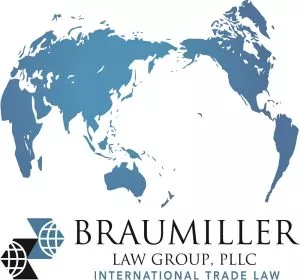On October 25, 2023, the Bureau of Industry and Security ("BIS") published interim final rules amending the Export Administration Regulations ("EAR") to add/clarify new controls on semiconductor manufacturing equipment ("SME"), advanced computing integrated circuits ("IC"), and computer commodities containing them. The interim final rules are scheduled to take effect on or around November 17, 2023 and can be readily viewed on BIS's website here. The interim final rules were published concurrently and, together, revise the October 7 interim final rule on the same topic.
The changes from the October 7 rule include a wide array of practical adjustments to expand the geographical reach to include Macau and D:5 countries, usher in modifications to Export Control Classification Numbers (ECCNs), bring clarity to restrictions affecting U.S. individuals and entities, and lay out provisions for exempted activities. The introduction of the License Exception Notified Advanced Computing (NAC) and Temporary General Licenses reflects a concerted effort to navigate the intricate intersection of global trade and national security interests, striking a balance between economic pursuits and the protection of sensitive technologies. Additionally, BIS added two Chinese entities, and their affiliates, to the Entity List for involvement in the development of AI-capable advanced computing chips.
In this dynamic trade environment, it is crucial for companies and U.S. individuals to maintain a heightened awareness of changes and to stay well-informed to effectively adapt to evolving regulations, capitalizing on potential opportunities while managing associated risks.
Expanded Jurisdiction: Macau and D:5 Countries, End Use Controls
Under the modified 15 C.F.R. §742.4 and §742.6, the requirement for obtaining a license now includes SME transactions with Macau and D:5 Countries, meaning exporting, reexporting, or transferring certain SME hardware and technology classified under specified sections of ECCNs 3B001, 3B002, 3D001, 3D002, and 3E001 to Macau or any D:5 country now requires a license. A license is also required when exporting 3E001 technology (parameters of 3A090) abroad that has been developed by an entity headquartered in Macau or a D:5 country, or the ultimate parent entity headquartered in either of these regions. Further, a license is required when exporting, reexporting, or transferring specific items categorized under ECCNs 3A090, 4A090, the new. z ECCNs, including related software and technology, to or within a D:1, D:4, or D:5 country (excluding destinations concurrently specified in Country Groups A:5 or A:6).
This jurisdiction has also expanded in the Foreign Direct Product Rules.
Revised Commerce Control List – Technology Parameter Thresholds Updated, Other ECCN Changes
The interim final rules remove ECCN 3B090 and expand controls on SMEs previously governed by ECCN 3B090, which now fall under ECCNs 3B001 and 3B002, with the anticipation of eventual multilateral control. The update encompasses a variety of additional SME types, including equipment tailored for the growth of silicon (Si), carbon-doped silicon, silicon germanium (SiGe), or carbon-doped SiGe epitaxial layers, equipment designed for coating, depositing, baking, or developing photoresist formulated for "EUV" lithography, equipment for semiconductor wafer fabrication cleaning and residue removal, and inspection equipment crafted for "EUV" mask blanks or "EUV" patterned masks, among others. These changes in ECCNs 3B001 and 3B002 have also necessitated corresponding adjustments to ECCNs 3D001, 3D002, and 3E001.
The revised 3A090 simplifies the previous paragraphs .a.1 -.a.4 by condensing them into a single paragraph (.a) for the most robust data center ICs and introduces a new paragraph (.b), encompassing less potent yet advanced ICs suitable for training large-scale AI systems. The amendment eliminates "interconnect bandwidth" as a technical criterion and introduces "performance density" as a novel parameter. Specifically, the amendments: (i) exclude certain non-datacenter ICs from control, such as select high-end gaming chips, and (ii) substitutes "bits x TOPS" with "Total processing performance" ("TPP") values, offering clear, objective criteria for calculating the "TPP" value.
For software and technology linked to the newly controlled SMEs described under 3B001, Regional Security (RS) and National Security (NS) controls have been incorporated. BIS has determined that the newly controlled equipment, as well as the associated software and technology, should typically be employed (with certain exceptions) for the production of logic integrated circuits featuring non-planar transistor architecture or with a "production" 'technology node' measuring 16/14 nanometers or less.
Clarifications and Key Exclusions to License Requirements for Activities of U.S. Persons
BIS's new rules narrow and clarify the "US Person" restrictions under EAR § 744.6. Specifically, the new rules:
- Expand the country scope of "US person" restrictions to include China, Macau, and all D:5 countries when the US person knows that the item will be used in the "production" or "development" of ICs at a facility of an entity headquartered in, or whose ultimate parent entity is headquartered in, either Macau or a D:5 country.
- Defines "servicing" to include installation of items not subject to the EAR that you know will be used at a facility involved in the "development" or "production" of Advanced-node ICs or specified SMEs.
- Clarifies that "production" (now used instead of "fabrication") does not include back-end steps such as assembly, test, or packaging that do not alter the IC technology level and that a "facility" where only "development" activities occur would not be included in the restrictions.
- Provides key exclusions for law enforcement activities, administrative and clerical activities, and for certain natural US persons employed by or working on behalf of (as contract support personnel) a company headquartered in the United States or an A:5 or A:6 country and not majority-owned by an entity headquartered in, or whose ultimate parent entity is headquartered in, either Macau or a D:5 country.
- Creates new red flag examples and additional due diligence requirements expected of US persons.
Certain Lithography Equipment – 0% De Minimis Threshold
Certain foreign-made lithography equipment and specially designed parts, now categorized under ECCN 3B001.f.1.b.2.b, will have a 0% de minimis threshold when they are intended for use in the "development" or "production" of ICs. The only exception to this rule is when the country from which the foreign-made item was originally exported also exercises control over that item, which is currently only the case for Japan. In essence, this means that any quantity of US-origin components will subject foreign-made lithography equipment to the jurisdiction of the EAR.
New Entities Listed for AI Capabilities
BIS has added 13 Chinese entities to the Entity List based on their participation and capabilities in the creation of substantial AI models and AI chips for defense applications for China.
New License Exception – Notified Advanced Computing (NAC) for Certain Non-Datacenter ICs
Under 15 C.F.R. § 740.8, there is a license exception for the export, reexport, and transfer of less powerful advanced ICs (ECCN 3A090.b) and certain 3A090.a commodities not intended for data centers but having a TPP of 4800 or more. This exception is not applicable to ECCN 3A090.a data center ICs or transactions subject to EAR Parts 744 or 746 license requirements or "military end-use/user." Exports and reexports to Macau or D:5 countries require 25-day prior notification to BIS before the first transaction.
New Temporary General Licenses
TGL for Supply Chains: To mitigate the impact on advanced computing supply chains, this TGL permits exports, reexports, and transfers of controlled items to D:1, D:4, or D:5 countries (excluding Country Group A:5 or A:6) if the recipient is in Macau or a D:5 country but not headquartered there, and the ultimate end use is outside these regions. Exceptions to the General License include transactions with parties on the Entity List or Military End-User List or items with a prohibited end-use. The General License is valid for two years, expiring on December 31, 2025.
TGL for "Parts," "Components," or "Equipment": Authorizes the export, reexport, or in-country transfer of non-EAR99 items controlled for AT reasons to manufacturing facilities in D:5 or Macau, for certain Category 3B ECCNs, directed by US or A:5/A:6 companies not majority-owned by Macau or D:5 entities. This General License is designed to support SME manufacturers in the US and A:5/A:6 countries. Restrictions apply to indigenous development or production in D:5 or Macau and involvement of parties on the Entity List or Military End-User List. The General License is effective immediately and valid for two years, expiring on December 31, 2025.
Conclusion
BIS introduced significant changes to the EAR through the publication of interim final rules on October 25, 2023. These rule amendments, set to take effect around November 17, 2023, encompass a broad range of export controls, particularly targeting advanced computing items, semiconductor manufacturing equipment, and items associated with the development and production of advanced technologies. The updates expand EAR jurisdiction to Macau and D:5 countries, introduce new ECCN changes, clarify US Person restrictions, and outline exclusions for certain activities. Furthermore, the introduction of License Exception NAC and Temporary General Licenses aims to provide tools to navigate the evolving landscape of global commerce and national security, ensuring a balance between economic interests and safeguarding sensitive technologies. Companies and U.S. persons must remain vigilant and informed to adapt to these evolving regulations and safeguard against potential risks and opportunities.
Footnote
1 Export Controls on Semiconductor Manufacturing Items, 88 Fed Reg 73424, published October 25, 2023, and Implementation of Additional Export Controls: Certain Advanced Computing Items; Supercomputer and Semiconductor End Use; Updates and Corrections, 88 Fed Reg 73458, published October 25, 2023
Check out our new Digital Magazine Get the inside scoop on the Braumiller Law Group & Braumiller Consulting Group "peeps." Expertise in International Trade Compliance.
The content of this article is intended to provide a general guide to the subject matter. Specialist advice should be sought about your specific circumstances.

